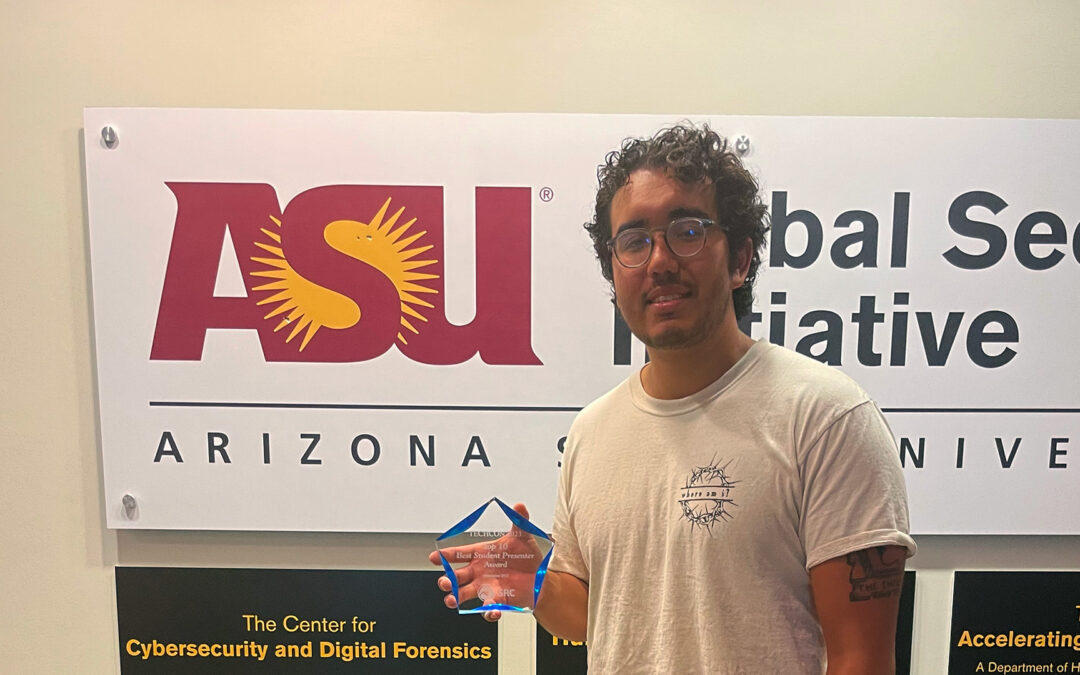As computing technology has grown more complex, devices’ weakness to a security vulnerability known as rowhammer has increased. Rowhammer attacks take advantage of the physical structure of memory chips in devices such as laptops and smartphones to corrupt their data, allowing hackers to conduct malicious acts such as stealing private information or taking over a computing system.
Eduardo Ortega, an electrical engineering doctoral student in the Ira A. Fulton Schools of Engineering at Arizona State University and a 2023 Fulton Fellow, set out to solve this problem in his research under his mentor, Fulton Professor of Microelectronics Krishnendu Chakrabarty. Ortega’s efforts earned him a Top 10 Best Student Presenter Award from the Semiconductor Research Corporation, or SRC, TECHCON 2023 conference for presenting his paper, “Simply-Track-And-Refresh: Efficient and Scalable Rowhammer Mitigation.”
“Simply-Track-and-Refresh, or STAR, provides scalable and efficient mitigation against rowhammer, all for lower cost when compared to other state-of-the-art published mitigation methods,” Ortega says.
His paper has been accepted for publication, and he will present it at the Institute of Electrical and Electronics Engineers International Test Conference in October 2023.
“This award means the industry liaisons from the SRC were receptive to my security work, which is highly encouraging,” Ortega says. “I look forward to continuing to collaborate with my advisor, Krishnendu Chakrabarty, and the industry liaisons of SRC for our efforts in hardware security.”
Ortega chose to focus on memory chip security for his doctoral degree research; the first part of his thesis focuses on memory chip security and he is investigating other solutions to secure devices against rowhammer attacks as well. He finds the academic environment at ASU to be conducive to semiconductor research.
“ASU has a comprehensive portfolio of research areas and specialties, which makes it a unique and exciting place to pursue a doctoral degree,” Ortega says. “There are many professors and students who focus on exciting research topics within the semiconductor industry. Being surrounded by this makes my experience at ASU unique — the community of researchers at ASU has been very supportive of my research efforts in hardware security.”
As he continues to complete his doctoral studies, Ortega is expanding his studies to gain a well-rounded understanding of electronic device security. He is learning about areas such as cryptography, machine learning, ethics and security to protect against attacks on power electronics.
